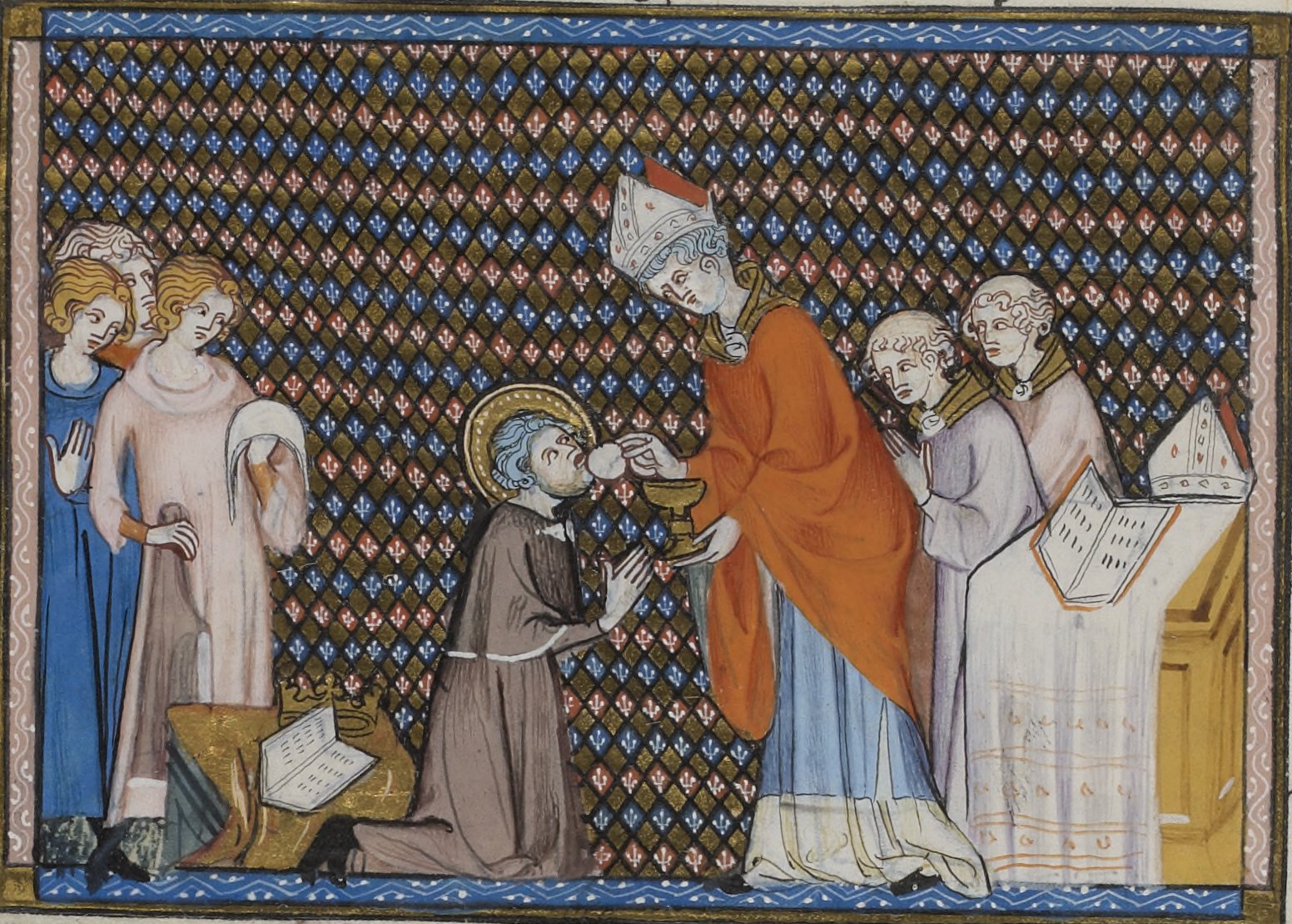Further advances in royal power came with Louis IX. Deeply pious, Louis carried his high standards over into his role as king. He wore simple clothes, gave alms to beggars, washed the feet of lepers, built hospitals, and created in Paris the Sainte-Chapelle (Holy Chapel) to hold a reliquary containing Christ’s Crown of Thorns. The church made Louis a saint in 1297 for personally leading two Crusades against the Muslims.
St. Louis did not let his own devotion to the church stop him from defending royal prerogatives against every attempt to infringe upon them. For example, when the popes tried to assess the churches of France for money and men for papal military campaigns, the king declared that church property in France was “for the requirements of
himself and his realm” and was not to be despoiled by Rome (1247).
Yet when he himself became deeply interested in the crusading movement, he needed papal support to enable him to tax the French clergy. The clergy then complained to the pope about the king’s demands for funds.
With the townspeople, too, there were difficulties during Louis’s reign. These difficulties arose in large measure out of internal conflicts between the small upper class of rich merchants and the lower class of tradespeople and artisans. When the Crown intervened, it was out of concern not so much for the poor and humble as for the maintenance of order and the continued flow of funds to the royal coffers. In 1262 Louis issued a decree requiring that the towns present their accounts annually.
This decree was a new sort of enactment, an ordonnance, or royal command issued for all of France without the previous assent of all the vassals. Royal power and prestige had now so progressed that Louis did not feel the need to obtain all his vassals’ consent each time he wished to govern their behavior; ordonnances signed by some vassals governed all. Examples of Louis’s ordonnances were his prohibition of private warfare and his law providing that royal money was valid everywhere in France.
Royal justice had now become widely desired. The royal court of justice alone came to be recognized as competent to try cases of treason and of breaking the king’s peace. The extension of royal justice to the towns was secured by bringing into the Parlement’s deliberations representatives of the middle classes—the bourgeois. So fair and reasonable was the king’s justice felt to be that his subjects often applied to him personally for it. He made himself available to them by sitting under an oak tree in the forest of Vincennes near Paris, and listening to the case of anyone, high or low, who wished to appeal to the king.
Louis was a remarkable man. In his devotion to the crusading enterprise, he was wholeheartedly embracing the highest ideals of the period. But he never seemed to realize that the Holy Lands could not be won by more Crusades. Moreover, it cost France a great deal to have the king delayed abroad for years and to have him languish in captivity from which he was redeemed only at great expense.
Yet for all his human failings, St. Louis typifies the medieval ideal that the divine law of God’s revelation was mirrored in human law. As God ordered the universe, so human law established the proper relationships of individuals to one another in society.

